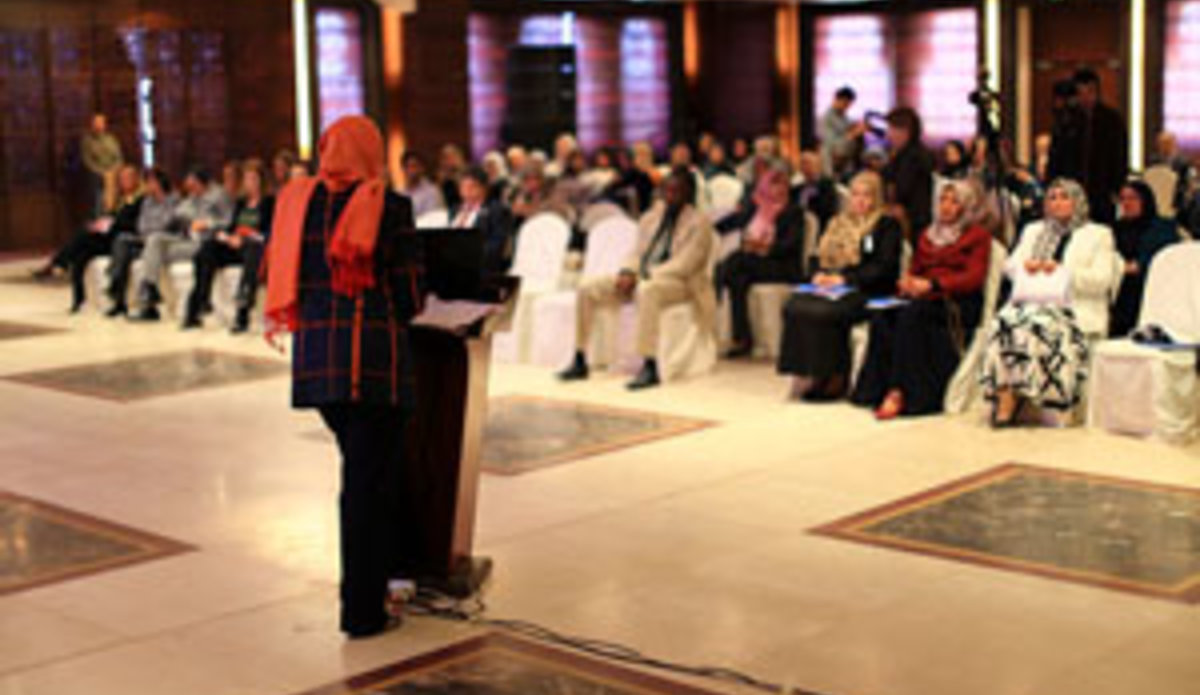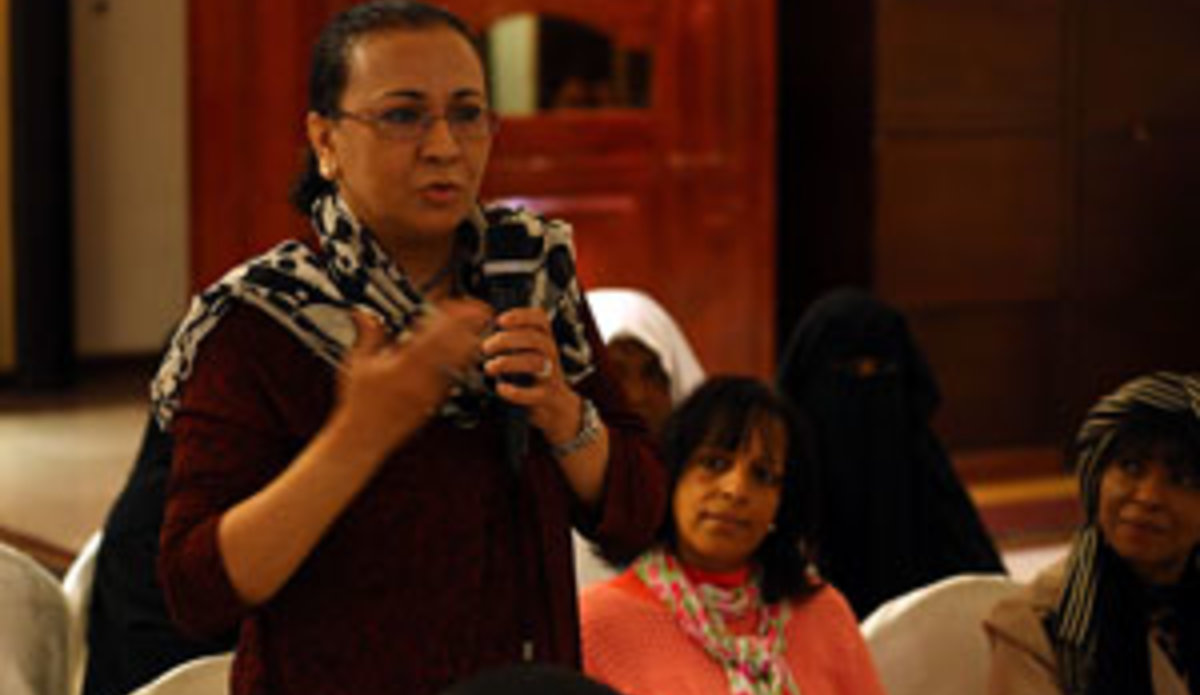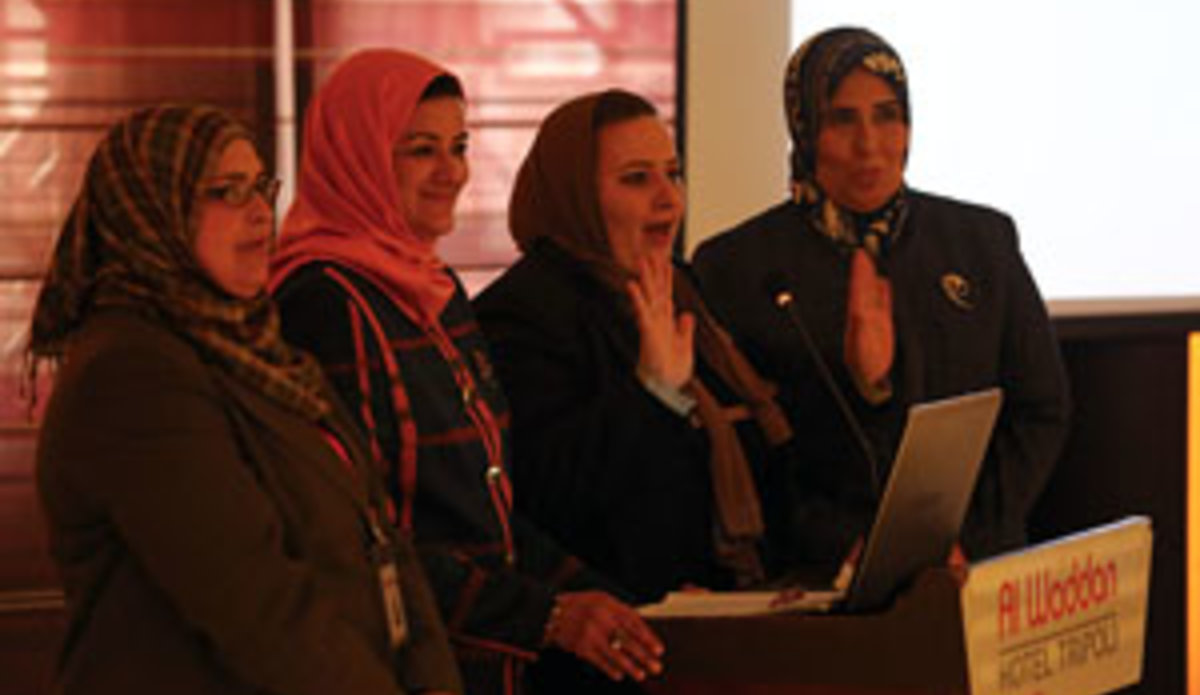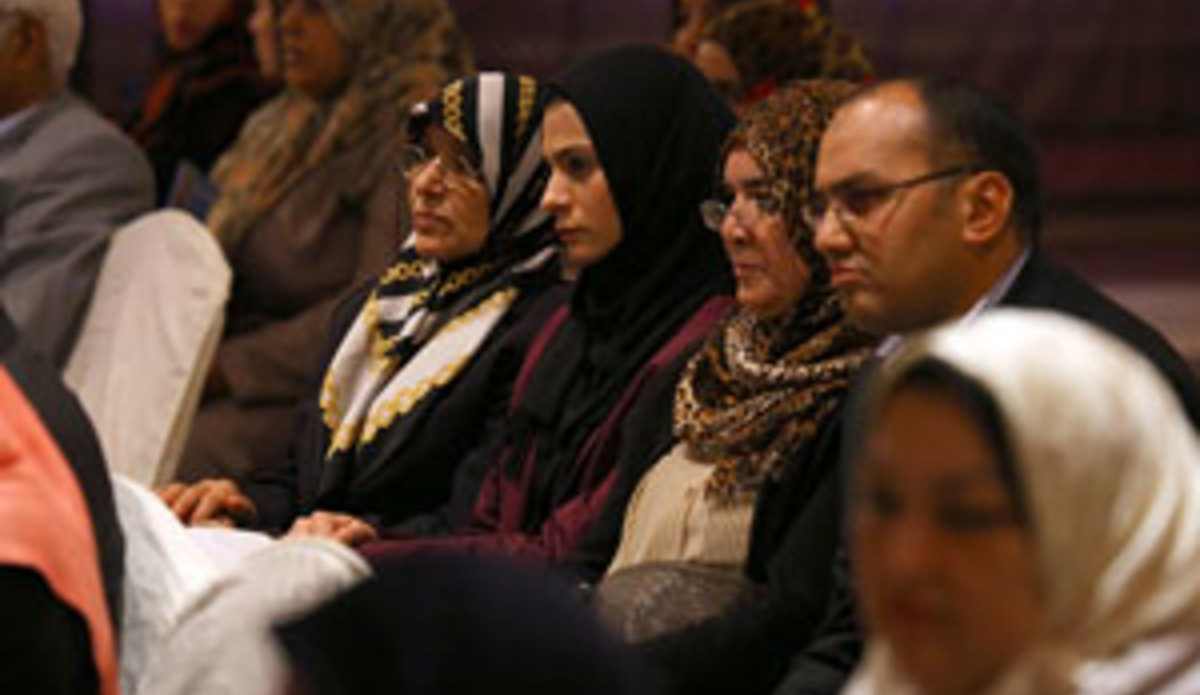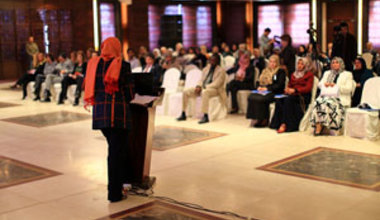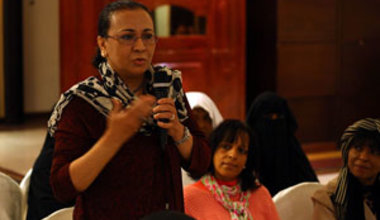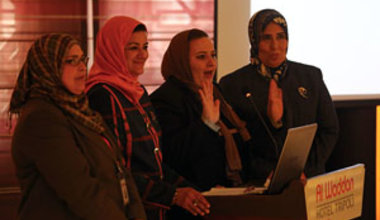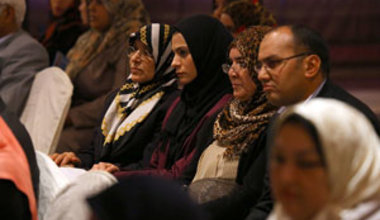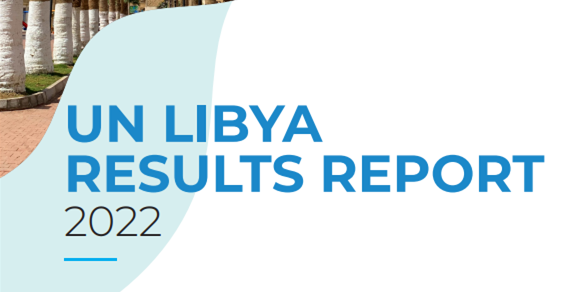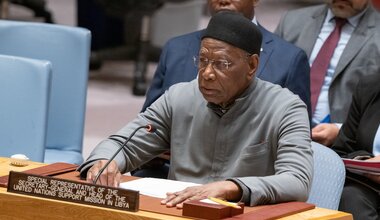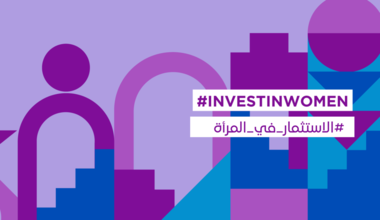International Women’s Day An Opportunity For Libyan Women To Seek Greater Role
Libyan women rights activists marking International Women's Day called for a prominent role for women in charting the course of the new Libya, particularly in the constitutional process, as they expressed fears that the revolution they helped bring about may curtail their influence.
| The President of the Libyan Women's Union/Tripoli Branch addresses an Event in Tripoli to mark International Women's Day |
Women played a significant role in the 2011 Revolution which swept away the dictatorship of Moammar Gadhafi. They were at the forefront of street protests and in the rebels' efforts to bring down the regime. Since then, they ran for elections to the General National Congress and have two Cabinet ministers.
In opening remarks at a conference on the International Women's Day 2013 on Saturday 9 March in Tripoli, a message from the Secretary-General's Special Representative for Libya Tarek Mitri praised women's role in the revolution and urged them to ensure their place in the constitution-making process.
"This is your opportunity to make your voice heard and to leave your mark, particularly on issues related to women and their rights, as well as on all national matters pertaining to the country and its future," said Mitri's message to Libyan women, which was presented to the conference by Radhia Achouri, the Director of Public Information and Communication of UN Support Mission in Libya (UNSMIL).
| A member of the audience makes a point during an event in Tripoli marking International Women's Day |
Minister of Culture Alhabib Al-Amin urged women to lead the way in charting their own destiny.
"I say to the women, you should take the initiative and present (proposals). You should not leave the void to the man. You should be a real partner."
He also called on women's groups to band together in order to further their goals and make their voice effective, saying they should not count on governments to win their rights.
"She is the one who will impose her rights," he said. "We should count on our efforts," he addressed dozens of women who attended the conference.
Hassan Mohammed Amin, head of the Human Rights Committee in the General National Congress (GNC), praised the work of the women's groups and said: "We will be side by side with the woman in her legitimate struggle to extract her rights."
| The organizers of an event in Tripoli marking International Women's Day address the audience at the conclusion of the event |
Women activists addressed the role of women in the transitional period and the political and security challenges they face. They expressed fears that women's rights would be jeopardized in post-revolution Libya.
Samira Massoudi, head of the Libyan Women Union/Tripoli, said although advances were made in women's status in Libya after the revolution and with the GNC elections, "there was still fear of women's rights could be lost in the new stage of drafting the constitution."
She insisted on a high percentage of women's representation on the Constitutional drafting Commission.
"Our ambition is that the Libyan woman be everywhere in the new Libya," she said. "Women are half the society and if we want to build a modern civil state how can we deprive half of the society?"
|
Members of the audience listen to speeches during an event |
Amal Elhaj of the Free Communications Organization spoke of the importance of enshrining women's rights in the constitution. Her motto was: "Libyan women vote with us for a prosperous life whereby our rights are in the Constitution."
Hind Shoubar spoke of the main challenges facing Libyan women in the next phase. She pointed out that there are less women in the current Cabinet than in the previous one and said women have been attacked and abused, including members of the Congress, and were kept out of a constitutional committee.
Addressing the conference about women and security, Nadin Nasrat called for a number of measures to strengthen women's rights, including appointing advisers for security plans to take into account the needs and requirements of women.
"Our goal is to strengthen the participation of women in making peace, and in political and economic decisions," she said.
Then Massoudi and Elhaj presented a summary of the campaign "My Lady: Where Are You from the Constitution?" which recommended a quota of at least 35 percent of the seats in elections.
"We will fight for our rights in the constitution," Massoudi said.
 United Nations Peacekeeping
United Nations Peacekeeping UN
UN
